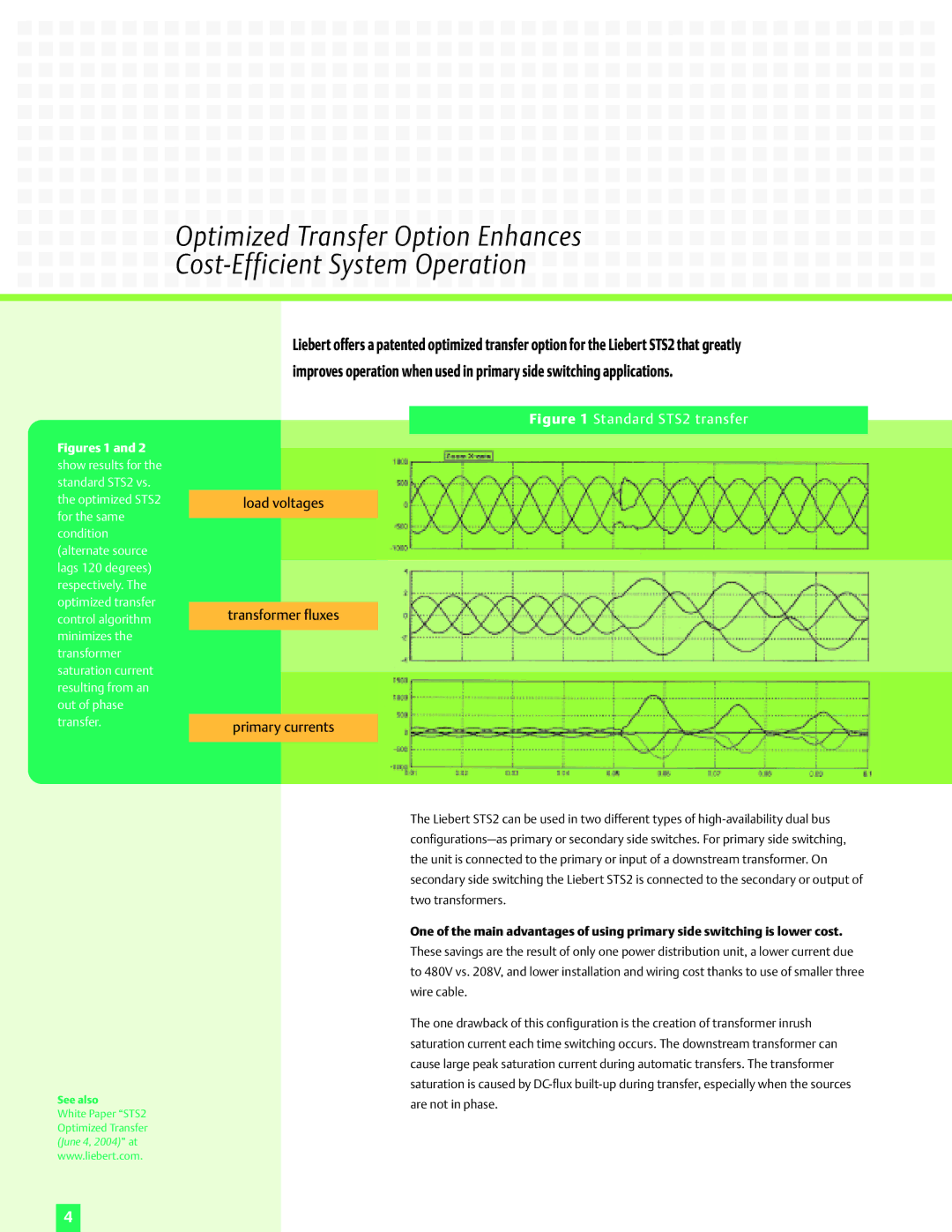
![]()
![]()
![]()
![]()
![]()
![]()
![]()
![]() Optimized Transfer Option Enhances
Optimized Transfer Option Enhances ![]()
![]()
![]()
![]()
![]()
![]()
![]()
![]()
![]()
![]()
![]()
![]()
![]()
![]()
![]()
![]()
![]()
![]()
![]()
![]()
![]()
![]()
![]()
![]()
![]() Cost-Efficient
Cost-Efficient![]()
![]()
![]()
![]()
![]()
![]()
![]()
![]()
![]()
![]()
![]()
![]()
![]()
![]()
![]()
![]()
![]()
![]()
![]()
![]()
Figures 1 and 2
show results for the standard STS2 vs. the optimized STS2 for the same condition (alternate source lags 120 degrees) respectively. The optimized transfer control algorithm minimizes the transformer saturation current resulting from an out of phase transfer.
See also
White Paper “STS2 Optimized Transfer
(June 4, 2004)” at
www.liebert.com.
Liebert offers a patented optimized transfer option for the Liebert STS2 that greatly
improves operation when used in primary side switching applications.
Figure 1 Standard STS2 transfer
load voltages
transformer fluxes
primary currents
The Liebert STS2 can be used in two different types of
One of the main advantages of using primary side switching is lower cost.
These savings are the result of only one power distribution unit, a lower current due to 480V vs. 208V, and lower installation and wiring cost thanks to use of smaller three wire cable.
The one drawback of this configuration is the creation of transformer inrush saturation current each time switching occurs. The downstream transformer can cause large peak saturation current during automatic transfers. The transformer saturation is caused by
4
